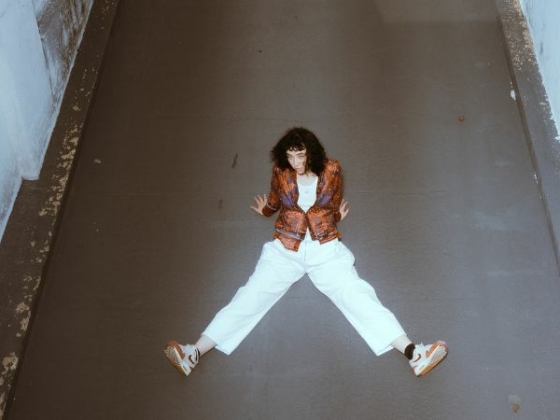This weekend, the colossal GelreDome Stadium in Arnhem transforms into a time-traveling spectacle as Transmission Festival ventures into its 20th edition with "The Temple of Time." Imagine 27,500 trance lovers from across the globe united under one roof, embarking on an audiovisual odyssey that weaves through the fabric of time – from ornate renaissance cathedrals to sleek cyberpunk landscapes and cosmic frontiers beyond imagination.
For two decades, Transmission has carved out a unique space in the trance sphere, elevating the genre beyond mere sound to create immersive theatrical experiences where music, light, and narrative converge. The 2025 edition is shaping up to be its most ambitious undertaking yet, with towering arches of sound, intricate lasers painting stories across the stadium's vast canvas, and performers whose movements echo through different eras – all synchronized to the soundtrack of trance's most influential voices, both old and new. As day turns to night inside the GelreDome's controlled universe, each artist's onstage stint becomes another chapter in this time-bending tale.
What separates Transmission from other electronic gatherings is that singular, unified focus – one massive stage commanding the attention of thousands, creating a communal energy that artists consistently describe as electric and transcendent. From Ferry Corsten's milestone 25th-anniversary Gouryella celebration to Paul van Dyk's masterful sonic storytelling, this year's handpicked lineup stands ready to guide attendees through nine hours of meticulously crafted musical exploration. The festival's signature artist intros – mini cinematic productions in themselves – serve as portals between epochs, while visuals by Vision Impossible transform the stadium's architecture into living, breathing environments from different periods of human history.
Ahead of the celebration, EARMILK caught up with the artists who'll be soundtracking this journey through the ages. Here's what they had to say about being part of Transmission's momentous 20th-anniversary spectacle.
Craig Connelly
"As an artist at Transmission, you're not just playing music but curating sounds for one of the biggest visual spectacles in electronic music. The story you tell with your sound is equal to the story the clubbers experience with the events production. This show has to be seen and not just heard."
Cosmic Gate
"Transmission overall sure is one of the biggest and certainly most recognisable Trance brands on the planet, known for its international crowd and outstanding production. We were lucky enough to be included in its big DJ lineups in the early years in its origins in Prague and to be part of the ambassador DJs all over the world, like on the Trancemission editions in Thailand or Australia. Now we look forward to being part of Trancemission for the first time in our literally musical second home in Europe, the Netherlands, and can’t wait to see you all in the GelreDome."
Daxson
"Transmission is one of those festivals that truly stands out; no matter which part of the world the festival is taking place in, it always delivers massive production, insane lasers, and a passionate crowd that brings unmatched energy. The scale of the stage is something every artist dreams of performing on, and it’s all run by an incredible team that I’m proud to have built a strong relationship with. Can’t wait to be back and create more special memories in the GelreDome."
Digital Culture
"This festival will always hold a special place in our hearts. They were the first to believe in our new project, Digital Culture, and that support means everything. From the top-tier production to the incredible crew — it's truly a highlight of our year. And let’s be honest… playing in the Gelredome? That’s a dream come true."
Driftmoon
"Transmission Festival holds a special place in my heart—both as an artist and as someone deeply involved behind the scenes. The level of production, the dedication to creating an immersive experience, and the sheer energy of the crowd make it one of the most unique trance events in the world. Having had the opportunity to perform my Vintage Pure Trance sets has been an incredible experience, and I’m always looking forward to pushing the boundaries of what’s possible—whether on stage or through my contributions to the show’s design. Transmission isn’t just a festival; it’s a global community of passionate fans and artists who come together to celebrate the music we love."
Hel:slowed
"Transmission, both as a festival and a brand, is truly something special. The production, the energy, and the connection between the crowd and the music make it an unforgettable experience every time. This will be our first time experiencing it as artists instead of visitors and our first mainstage stadium event, making it an incredibly special moment for us. We can’t wait to be part of this incredible journey!"
Markus Schulz
"Having such a comprehensive story with Transmission has been one of the highlights and most important chapters of my career. To have been there from the beginning and seen it grow from an annual gathering in Prague to staging so many top-class events worldwide is a credit to Anco and his team. What I love about Transmission is that unlike every other festival you play, it's one single stage, and everyone in that arena is united to watch you perform. The visuals and laser shows are among the most spectacular you will see anywhere in the world. It's an event I continue to feel privileged to play."
Paul Van Dyk
"I'm beyond excited to bring my music to Transmission Festival's first-ever show in the Netherlands! It’s an extra special night as it’s the release weekend of my new album, This World Is Ours—expect to hear a lot of fresh music like "Beautiful," my collab with Julia Westlin! Transmission always delivers an incredible production—the LED, lasers, and special effects make it a truly stand-out experience. But what makes it even more special is the passionate audience—the energy, the love for music, it’s what every artist dreams of. Huge thanks to the amazing Transmission team for always delivering a top-notch experience for DJs and music lovers and making me feel so welcome. See you on the dance floor!"
Transmission Festival takes place on Saturday, April 12th, 2025, at the GelreDome Stadium in Arnhem, The Netherlands. For more information and to purchase tickets, visit their website.
Connect withTransmission Festival: Facebook | Twitter | Instagram | Website











